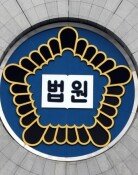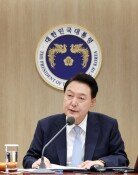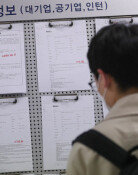North Korea should not be a game changer
North Korea should not be a game changer
Posted August. 10, 2017 07:29,
Updated August. 10, 2017 07:46
The Washington Post reported on Tuesday that North Korea has successfully produced ballistic missiles and intercontinental ballistic missiles that are equipped with nuclear warheads and miniaturized a nuclear warhead that can fit on an ICBM, citing a confidential analysis completed last month by the U.S. Defense Intelligence Agency. U.S. President Donald Trump warned Pyongyang of a nuclear attack after the news was reported, saying, “The U.S. will respond with fire and fury that the world has never seen yet.” In response, the North threatened the U.S, saying, ”We are reviewing operational plans to bomb Guam with Hwasong-12 missiles.”
Though Trump makes belligerent remarks often, this is the first time that he himself mentioned his intention to engage in a war against the impoverished regime. Likewise, the North had never specifically stated where to attack on the continental U.S. The U.S. military operates a launching base in Guam for strategic weapons and long-range strategic bombers that will fly to the Korean Peninsula in an emergency, a pain in the ass to the North. The hostile tit-for-tat rhetoric between Trump and North Korean leader Kim Jong Un will not immediately make them stumble into a war on the Korean Peninsula. There are signs that a war is coming. For example, U.S. citizens staying in South Korea start to evacuate if a war seems imminent. However, the current situation is not hinting at a war on the Korean Peninsula. A senior official at the South’s presidential office bluntly denied, saying, “I do not agree on the escalating risk on the Korean Peninsula.”
Unfortunately, combative remarks by unpredictable and volatile Trump and Kim Jong Un are intensifying tensions on the Korean Peninsula and the North East Asian region. If the North successfully miniaturized a nuclear warhead as reported by the Washington Post, it means a U.S. admission of the North Korean nuclear weapon. Japan also said in its annual threat assessment on Tuesday, “It is possible that North Korea has achieved the miniaturization of nuclear warheads through five nuclear tests.” In other words, the North will be capable enough to unleash an attack on the mainland U.S. as long as it acquires a technology to enable reentry of its ICBM through the atmosphere. If so, the North will emerge as a game changer that can break the order of security in the North East Asian region.
South Korea and Japan believe that any attack by the North on them will promote nuclear retaliation by the U.S. To be specific, they believe the extended deterrence by the U.S. However, the U.S. will not use its nuclear weapons without hesitation if the North threatens to attack the mainland U.S. The extended deterrence of the U.S. lies at the foundation of the trust among South Korea, the U.S. and Japan, and if the trust vanishes, it will lead to weakening of the alliance between South Korea and the U.S. and the alliance among South Korea, the U.S. and Japan. Against the backdrop, South Korea and Japan will start considering nuclear armament and China’s influences will increase. Probably, this is what the North is hoping for.
Hawkish politicians in the U.S. talk about a war on the Korean Peninsula at the expense of mass civilian sacrifice in two Koreas. At the same time, the world should not allow Kim Jong Un’s bluff to shake the landscape anymore. The Defense Intelligence Agency concluded that the North will be capable enough to attack the mainland U.S. with a miniaturized nuclear warhead fitting on an ICBM next year. The time is ticking. South Korea, the U.S. and the international community should beef up pressure on the North to make Kim Jong Un feel the insecurity of his regime and make him give up his nuclear ambitions. If needed, a transition of the regime in Pyongyang should be reviewed seriously. On top of it, South Korea should be committed to acquiring strategic weapons for its defense through the stronger alliance between Seoul and Washington. Re-stationing of strategic nuclear forces and construction of a nuclear submarine are cases in point.
Headline News
- Israel prepares for retaliation against Iran
- Samsung reclaims top spot, surpassing Apple in smartphone market
- 77% of Koreans in 20s and 30s are 'Kangaroo Tribe' due to job crisis
- KBO referees embroiled in controversy over ABS decision concealment
- Inflation, oil price surge put double shock on global economy







